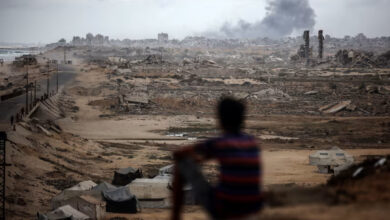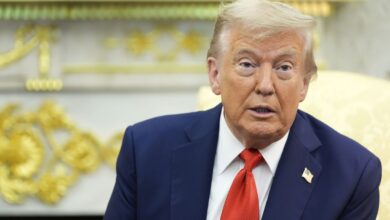Israel outlined maritime economic borders on Sunday that challenged what it said were boundaries submitted by Lebanon to the United Nations in a dispute fueled by massive Mediterranean gas finds.
An Israeli government statement did not give the coordinates of the natural resource exploitation zone approved by the cabinet, saying only that it borders Lebanon and Cyprus.
Prime Minister Benjamin Netanyahu said Lebanon's proposed lines encroached on the Israeli-claimed area and contravened sea boundaries that Israel defined with Cyprus in 2010 to pave the way for hydrocarbon exploration in the eastern Mediterranean.
"The borders that Lebanon presented at the United Nations are a significant distance south of the proposed Israeli line," Netanyahu told reporters.
Israel and its northern neighbor Lebanon are formally in a state of war and have no agreed sea border. Beirut has asked the United Nations to ensure that Israeli drilling plans do not threaten its own offshore reserves.
The issue gained importance after the discovery in the past two years of the massive Tamar and Leviatan natural gas fields in Israeli waters estimated to be worth tens of billions of dollars.
Texas-based Noble Energy and its Israeli exploration partners said the Leviathan prospect – 130km (80 miles) off the Israeli port of Haifa – was the world's biggest deepwater gas find in the past decade.
Lebanon has not laid claim to those reserves, but it has said it has identified promising quantities of natural gas in its own waters. It has accused Israel of violating international law by allowing energy firms to explore in the absence of a maritime border pact.
In separate remarks, Israeli Foreign Minister Avigdor Lieberman said Israel would convey its proposed lines to the United Nations.
"In terms of procedure, international law and maps, we have a very strong position, and we won't give an inch," Lieberman said on Israel Radio.
Lebanese officials have told Reuters the U.N. had assured Beirut it was working on a solution that could respond to Beirut's request for demarcation help, although U.N. officials in New York have been skeptical about the world body's options.




